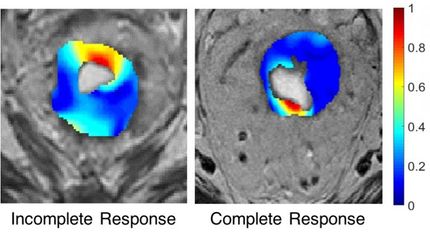Epigenomics Presents Positive Results with DNA Methylation Markers for Predicting Disease Recurrence in Breast Cancer Patients
Advertisement
Berlin and Seattle. Epigenomics AG announced today positive results from clinical studies showing that its proprietary DNA methylation markers can identify the likelihood of disease recurrence in women following breast cancer surgery. Currently most hormone-receptor positive, node negative breast cancer patients, the largest group of newly diagnosed breast cancer patients, are classified at high risk when their disease is assessed by standard prognostic factors such as age, tumor size and tumor grade. For these patients chemotherapy is usually recommended in addition to endocrine therapy (tamoxifen). Epigenomics' data show that about 50% of these women can potentially be considered as being at a low risk of disease recurrence and may have an excellent treatment outcome with endocrine therapy (tamoxifen) alone. The results of these studies were presented at the 40th annual American Society of Clinical oncology.
"This data is very encouraging and is an important step towards more individualized treatment for women with breast cancer," stated Prof. Dr. med. Nadia Harbeck, Associate Professor of Obstretrics and Gynecology, Technical University of Munich, Germany, one of the investigators. "By identifying those patients that do sufficiently well on tamoxifen alone, a DNA methylation marker based diagnostic test could significantly reduce current overtreatment in breast cancer, thereby contributing to a much improved quality of life for these women."
Epigenomics and its collaborators first analysed 109 tumor samples from patients who had undergone breast cancer surgery and been treated with tamoxifen only. From a total of 117 candidate markers that were analysed using Epigenomics' biochip, the DNA methylation status of the PITX2 gene was most strongly correlated with disease reccurrence.
After this promising finding, Epigenomics confirmed the performance of this marker in an independent cohort of 236 patients from 5 clinical centers. These patients had undergone surgery for hormone-receptor positive, node-negative breast cancer and received adjuvant tamoxifen monotherapy. In this cohort, 90% of the group with low PITX2 methylation were metastasis-free after 10 years, whereas only 65% of the group with high methylation had remained metastasis-free. PITX2 methylation in breast cancer adds significant independent information about tumor recurrence to known factors such as age, differentiation grade and tumor size, the current standard factors for classifying disease. PITX2 has been described to play a role in hormonal regulation, and aberrant methylation of PITX2 has been observed in certain subtypes of leukemia.
Based on these data, Epigenomics has developed diagnostic assays incorporating PITX2 and other promising DNA methylation markers to identify those patients that would have an excellent outcome withtamoxifen monotherapy alone. In cooperation with its clinical partners, Epigenomics is currently analyzing the performance of these markers in a large cohort of about 1300 patients. The studies form part of the research program Epigenomics is conducting in a partnership with Roche Diagnostics.
"The successful outcome of this trial is a major achievement for the team at Epigenomics and our clinical collaborators. With this information we believe that oncologists have a more complete picture of the disease to help them guide subsequent therapy with tamoxifen and/or chemotherapy," noted Alexander Olek Ph.D., Chief Executive Officer of Epigenomics. "The final breast cancer diagnostic test will comprise of only very few DNA methylation markers and will be performed on routinely obtained, paraffin-embedded tissue sections. We expect that it will be possible to easily integrate this test based on our technology into today's clinical pathology routine."






















































